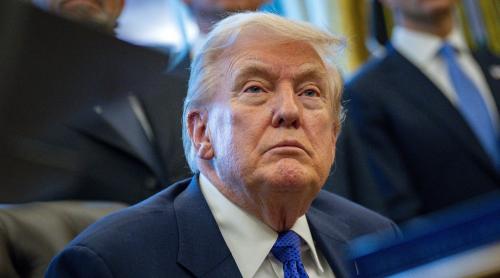
OBSERVER - October 13th 2004
Romania commemorated Tuesday the Jewish victims of the pro-Nazi regime of Marshal Ion Antonescu, during WWII.
This was a first for the East European country, not used to recognize its contribution to the Holocaust.
MARINA CONSTANTINOIU, ANIELA NINE
The Holocaust Day was first to take place on 9 October, on a recommendation from the International Committee set up for studying the consequences of the Holocaust in Romania and from the Community of Jewish Federations in Romania.
Still, the commemoration was relegated to October 12 since October 9 was on a Saturday this year, which is the Jewish weekly holyday (Sabat).
The Holocaust Day marks 63 years this year from launching the deportation of Jews to Transnistria region, east of Romania.
Commemoration activities started early yesterday with a religious service at the Jewish Temple in Bucharest, where President Ion Iliescu and PM Adrian Nastase attended and presented flower reefs. The Israeli ambassador to Romania, Rodica Gordon Radian, and the Jewish Community also presented flower reefs.
Then the Parliament Palace hosted a solemn meeting of politicians and religious leaders in Romania. Valer Dorneanu, the House Speaker, said in his opening remarks that "reevaluating history and the delicate and horny details of the Holocaust was more than necessary."
Iliescu presented in his speech the context in which the repression against the Jews took place in Romania. He showed that instating a Holocaust Day in Romania was "a pious homage to all those who suffered because of the discriminatory, anti-Semitic and racist policies promoted by the Romanian state during a murky time of the national history."
According to latest research, Iliescu said, some 250,000 Jews died during the war in territories administrated by Romanians, and another 12,000 Roma died in Transnistria too, after their deportation there.
The commemoration at the Parliament Palace continued with an ecumenical service conducted by the leaders of all the 16 religious creeds and faiths recognized in Romania.
This is but the first step on the road towards reconciling the country with its past, after the authorities stirred the international community in 2003, when they downsized the importance of the Holocaust and rejected Romaniaâs responsibility in exterminating the Jews during WWII, commented AFP.
The American publication Forward also mentioned in its October 8 issue the episode evolving Iliescu, who made waves in the media when he stated that "inside Romaniaâs borders no Holocaust took place between 1940 and 1945."
To prove good faith, the Romanian Executive set up an international committee of historians, headed by the Nobel laureate and Romania born Ellie Wiesel, to seek the truth regarding the Shoah in Romania.
Translation: ANCA PADURARU
Citește pe Antena3.ro

















